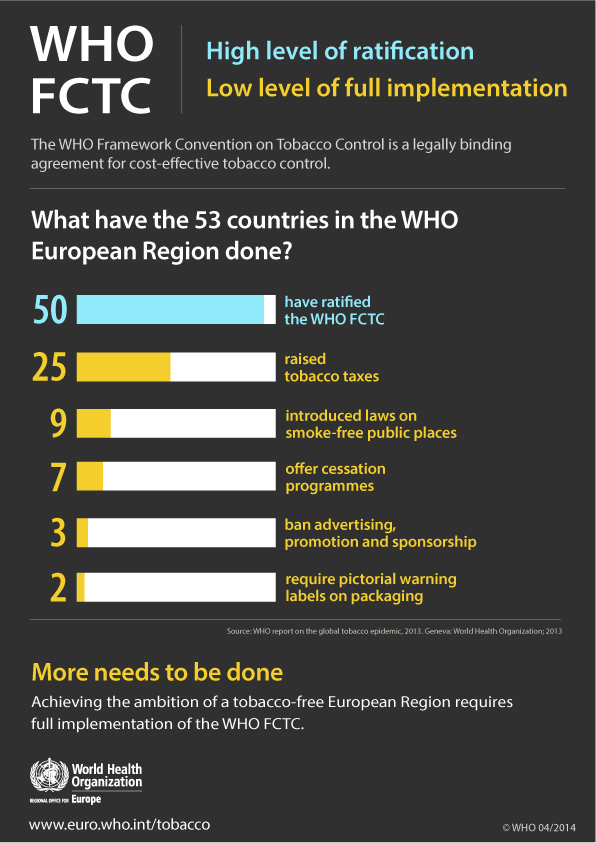Technical consultation on road map of actions to fully comply with the WHO Framework Convention on Tobacco Control, 2015–2020

24–25 February 2015, Moscow, Russian Federation
Member States have recognized the importance of tobacco control at the global level by adopting the WHO Global Action Plan for the Prevention and Control of Noncommunicable Diseases 2013–2020, which calls for a 30% relative reduction in tobacco use prevalence by 2025. Such a reduction would contribute to achieving other targets of the Global Action Plan, including a 25% relative reduction in the risk of premature mortality from cardiovascular diseases, cancer, diabetes or chronic respiratory diseases. The full implementation of the WHO Framework Convention on Tobacco Control (WHO FCTC) would contribute substantially towards achieving this target.
WHO European Member States will participate in a technical consultation in Moscow on 24–25 February to further develop a road map of actions and policy options to comply with the WHO FCTC and the vision of a tobacco-free Region described in the 2013 Ashgabat Declaration on the Prevention and Control of Noncommunicable Diseases in the Context of Health 2020.
The road map will build on the commitments of Health 2020: a European policy framework and strategy for the 21st century and is in line with existing WHO frameworks and strategies, such as the WHO Framework Convention on Tobacco Control and its Protocol, the WHO Global Action Plan for the Prevention and Control of Noncommunicable Diseases 2013–2020 and the European Strategy for the Prevention and Control of Noncommunicable Diseases.
Purpose of the technical consultation
The technical consultation has three main objectives:
- to provide Member States with an opportunity to review and comment on the existing draft of the Roadmap of actions to fully implement the WHO Framework Convention on Tobacco Control in Europe (2015–2020), with a view to guiding its further development;
- to ensure that any relevant lessons from country-level experience are captured and inform the next draft, as well as to incorporate emerging or missing scientific evidence; and
- to contribute to further developing the road map actions ahead of the 65th session of the Regional Committee for Europe in Vilnius, Lithuania, in September 2015.



